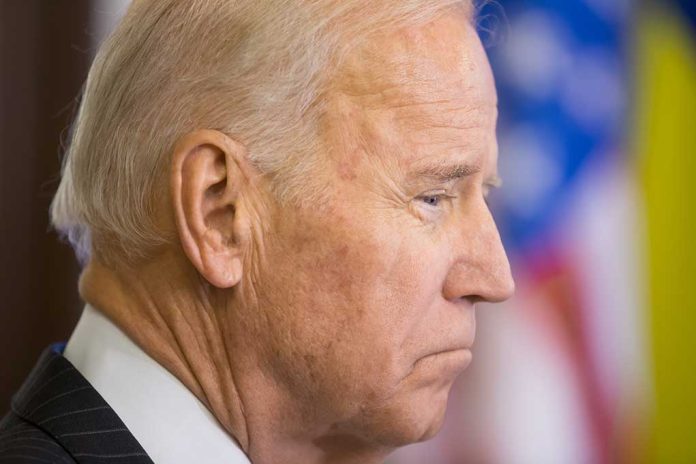
Two death row inmates shock the nation by rejecting President Biden’s clemency offer, sparking a legal battle that could redefine the limits of presidential pardons.
At a Glance
- Shannon Agofsky and Len Davis, federal death row inmates, attempt to reject Biden’s commutation of their sentences.
- Inmates claim commutation hinders their chances of appealing cases due to reduced scrutiny.
- Biden commuted sentences of 37 federal death row inmates to life imprisonment without parole.
- Move aligns with Biden’s anti-capital punishment stance but faces criticism and legal challenges.
- Supreme Court ruled in 1927 that presidents can grant pardons without convict’s consent.
Inmates Resist Presidential Clemency
In an unprecedented turn of events, two federal death row inmates, Shannon Agofsky and Len Davis, are attempting to reject President Joe Biden’s clemency that commuted their sentences to life without parole. This shocking decision has thrust the complexities of death penalty appeals and presidential pardons into the national spotlight.
Agofsky and Davis argue that accepting the commutation would severely hamper their ongoing legal appeals. They contend that death penalty cases typically receive heightened scrutiny, which they believe is crucial for their claims of innocence and efforts to overturn their convictions.
Two prisoners who are among the 37 federal inmates whose death sentences were commuted last month by President Biden — a move that spares them from the death chamber — are refusing to sign paperwork accepting his clemency action. https://t.co/qCT7zouA11
— NBC News (@NBCNews) January 6, 2025
The Cases of Agofsky and Davis
Shannon Agofsky was sentenced to death for a 2001 murder committed while in prison, following a prior life sentence for a 1989 murder. Len Davis, a former New Orleans police officer, received the death penalty for arranging the 1994 murder of Kim Groves after she filed a brutality complaint against him.
Both inmates maintain their innocence and argue that their death sentences highlight misconduct in their cases. Their resistance to the commutation has led to emergency motions being filed to block the change in their sentences.
Biden’s Clemency Decision and Its Implications
President Biden’s decision to commute the sentences of 37 federal death row inmates to life imprisonment without parole aligns with his campaign promise to eliminate the federal death penalty. This move spares these inmates from execution but has sparked political debate, especially given the contrasting stance of President-elect Donald Trump, who plans to expand the death penalty.
The commutation excludes three inmates, including the Boston Marathon bomber and other high-profile criminals. Biden’s administration had previously announced a moratorium on federal executions to review protocols, a move that faced both praise and criticism from various quarters.
Legal Challenges and Presidential Power
The attempt by Agofsky and Davis to reject the commutation raises intriguing legal questions. A 1927 Supreme Court ruling states that a president can grant pardons without the convict’s consent, potentially complicating the inmates’ efforts to block the clemency.
This unusual situation highlights the tension between presidential clemency powers and the legal strategies of death row inmates. It also underscores the complex nature of death penalty cases and the heightened scrutiny they typically receive in the judicial system.
The Road Ahead
As this legal battle unfolds, it will likely prompt further discussions on the nature of presidential pardons, the rights of death row inmates, and the broader debate surrounding capital punishment in the United States. The outcome of these cases could have far-reaching implications for future clemency decisions and the legal strategies employed by death row inmates.
While Biden’s decision reflects his commitment to reforming the criminal justice system, the resistance from Agofsky and Davis demonstrates the complex and often unexpected challenges that can arise in the pursuit of such reforms. As the legal process continues, all eyes will be on the courts to see how they navigate this unprecedented situation.
Sources:
- Indiana death row inmates make shock decision after Biden granted them clemency from execution
- Two federal death row inmates refuse Biden’s commutation in continued fight to prove their innocence
- Two federal death row inmates refuse to sign Biden’s clemency paperwork: ‘Does not want commutation’
- Two death row inmates reject Biden’s commutation of their life sentences




